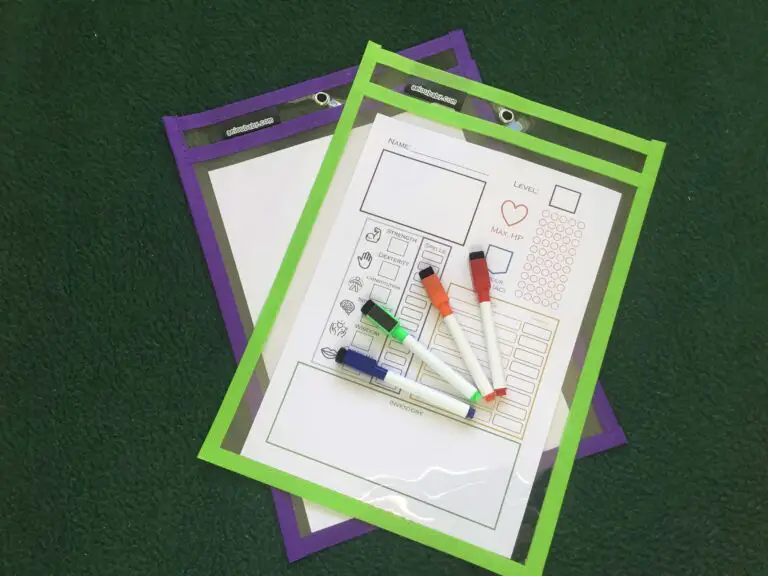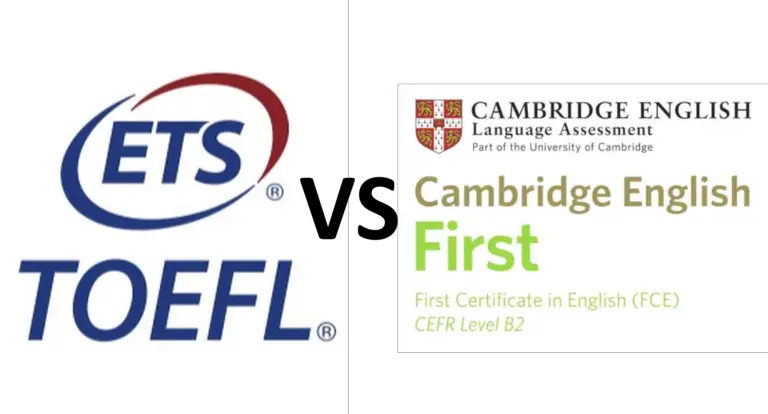Navigating the world of TEFL certification is confusing. Level 3, Level 5, CELTA, DELTA, CertTESOL, 120 hours, 168 hours… If you’re bewildered by all the terms and acronyms, I hope to explain it all in this article, and help you make the right decision about which certificate to get.

The most widespread and recognised TEFL certificates are Level 3 (120 hour) and Level 5 (168+ hour) qualifications. Level 3 is considered the industry minimum. Level 5 TEFL certificates, as well as CELTA and CertTESOL courses, are more challenging, but required in some countries.
Which certificate you should get depends on your TEFL goals. The country you intend to teach in and the type of job you hope to do will help inform your decision.
If you’re undecided on which country to teach in and the type job you want, make sure to read my full guide which explains everything you need to get started in TEFL, with links to lots of other detailed articles I’ve written. Find it here: Big Guide to Starting Out in TEFL: All you need to know
What is the best TEFL certificate?
TEFL qualifications are ranked by levels of difficulty. Numbers range from 1 to 8, with Level 1 being the lowest and Level 8 the highest. The rankings come from Ofqual, the English government’s department for qualifications, exams and tests. Click here to learn about the levels in detail.
Only three levels apply to the vast majority of TEFL certificates: Levels 3, 5 and 7.
Level 3 courses have a minimum requirement of 120 hours and an equivalent difficulty to A-levels in the UK, an International Baccalaureate, and Advanced Placement tests in American schools.
Level 5 courses require at least 168 hours and are at the same difficulty level as Foundation degrees and the second year of a Bachelor’s. Level 5 courses often have more than 168 hours.
Level 7 courses are Master’s degree difficulty. They demand significantly more study time in addition to prior TEFL teaching experience.
NOTE: A Level 5 TEFL course is considered the same difficulty as a Foundation degree or second year of a Bachelor’s, but does NOT have the same value. What’s more, the difficulty depends on the course provider. From my experience, TEFL courses are often a lot easier than their Ofqual level suggests.
Is becoming a TEFL teacher difficult? Find out by reading my in-depth article Is TEFL Teaching Hard? A guide to whether TEFL is right for you
Any full certificate below Level 3 (less than 120 hours) is a waste of time and money. They’re worthless in the job market. In fact, most TEFL trustworthy course providers no longer have the option of a 60 or 90 hour course.
Having said that, don’t discount everything you see under 120 hours. There are plenty of optional addons which can supplement a Level 3 course and allow you to specialise. Just make sure your main TEFL certificate is 120 hours or more. I’ll talk about addon courses later (click here to skip there now).
At the other end of the spectrum, courses above level 5 are unnecessary for the majority of TEFL practitioners.
The main example of Level 7 certificates is the DELTA (Diploma in Teaching English to Speakers of Other Languages). According to the Cambridge English website, which provides the course, it’s only for those who have already been teaching for a year and want to progress to management or training roles.
To get a level 7 qualification, you have to commit to months of study and pay a significant price for tuition. Unless you see TEFL as a long-term career, avoid this kind of certificate.
We’ve narrowed the field down to Level 3 and Level 5 certificates. Both are great potential options if you’re starting out in the industry, and which one you choose depends on your specific circumstances.
Who should get a Level 3 (120-hour) TEFL certificate?
The Level 3 120-hour certificate is the industry standard, and a minimum requirement for the majority of TEFL jobs around the world. It’s the staple.
It’s offered by all TEFL course providers, and should cover the basics of teaching English.
This certificate is best for people who:
- Have a bachelor’s degree (in any subject)
- Are a native English speaker
- Intend to teach for a year or two in a popular TEFL country.

Having a bachelor’s degree helps you get visas and work permits. It also shows employers you have a certain level of academic rigour. Being a native English speaker also lets employers know your English is at a high level (although it doesn’t mean you’re a good teacher!)
In a country where TEFL teachers are in high demand (most of East Asia, Latin America and certain European countries like Spain), you only need a Level 3 120-hour certificate to get a decently paid job.
Searching for the perfect TEFL destination with the best earnings? Compare countries around the world with my free resource: How Much Do TEFL & TESL Teachers Make? Countries compared.
If you fulfill all three points in the list above, a level 3 120-hour course is all you need. You’re already attractive to employers, so spending more time and money on a higher level certificate won’t make much of a difference.
However, if you only meet one, or even none, of the criteria in the list, you may consider the higher level qualification.
No matter what certificate you go for, you need a good course provider. I recommend International TEFL and TESOL Training. Click the link for 15% off all courses (I receive compensation, so you’re supporting me, too). Not convinced? Read why I’d choose ITTT over other TEFL course providers.
Who should get a Level 5 (168+ hour) certificate (or CELTA/CertTESOL)?
Level 5 (168+) hour certificates are confusing in their own right. There are three different types: Level 5 TEFL, CELTA, and CertTESOL.
While they’re all at the same level of difficulty, they don’t have the same value. They have different content and are not considered equal by employers. Here, I’ll outline each of them in brief.
Level 5 TEFL
Similar to the Level 3 TEFL, but with at least 168 hours, and more in-depth instruction. Mostly self-paced and online, although you can do them in-person with some course providers.
CELTA
Certificate in Teaching English to Speakers of Other Languages. Provided by Cambridge English, a massive brand in the TEFL world. Takes place in-person over the course of one month. Challenging and intense.
CertTESOL
Trinity College’s version of the CELTA, the CertTESOL (Certificate in Teaching English to Speakers of Other Languages), is almost the same as the Cambridge course – one month of intense study with a similar reputation in the industry.
Which is best, CELTA, CertTESOL or Level 5 TEFL?
In terms of attractiveness to employers, the CELTA narrowly edges the CertTESOL, with both far ahead of the Level 5 TEFL.
The Level 5 TEFL is seen as a slight upgrade on the Level 3 TEFL. The other two in a much higher bracket. Employers asking for a CELTA or CertTESOL will not consider a Level 5 TEFL certificate sufficient.
On the other hand, the Level 5 TEFL certificate is cheaper and less demanding.
Who should get the Level 5 TEFL certificate?
Anyone lacking a bachelor’s degree, native English, or hoping to stand a little above the rest in a popular TEFL destination may consider the Level 5 TEFL.
Don’t have a bachelor’s degree and concerned it’ll be hard to start out in TEFL? Not to worry – check out my article Do You Need a Degree to Work as a TEFL Teacher?
Having a Level 5 doesn’t mean it’ll get you a job ahead of someone with a Level 3 TEFL. And it won’t get you a better salary.
What it will do is make you a better teacher, with more in-depth content and experience.
Who should get the CELTA or CertTESOL?
If you’re looking for advanced TEFL jobs, or positions in highly competitive countries (Middle East and most of north and western Europe), a CELTA or CertTESOL may be worthwhile.
This is for people taking it seriously. If you’re just intending to travel and enjoy yourself for a year, this isn’t the right course for you – it’ll be a full month of intense study, and an unnecessary financial outlay.
In terms of choosing between the two, CELTA is better known around the world. The difference is slight, though, and what’s more important is if you can find an official centre which runs the course in a place that’s convenient for you.
Still not sure about which TEFL destination you want to teach in? Read my article How to Pick the Right TEFL Destination: 5 steps to success to help make your decision.
What about addons and extra qualifications?
Most TEFL course providers offer extra modules and addons to supplement the base course.
These vary in length and content, but are usually between 30 and 60 hours and focus on topics like business English, teaching young learners, or online classes. They’re often combined with the base course to create a package that’s 200 or more hours.
Think carefully before committing to these addons. They take up more of your time, and the course providers want you to spend more money, so they make them look attractive.
In the right situation, they can be valuable. If you know you want to teach online, absolutely go for the online module. If you’re certain you want to work with young kids – pick that. They’ll give you some good training and confidence in your specialty.
If you don’t know what type of TEFL job you’re interested in, why not take a look at my article detailing the options: What Type of TEFL Teaching is For You? Jobs explained
But if you’re not sure, don’t buy them all thinking they’ll make you more employable. And don’t worry, if somewhere down the line you decide you want to specialise, you can always go back and take the extra courses later.
What about degrees in education and the PGCE?
To work in public schools, you often need a master’s level degree in education and a teaching license. In the UK, the most common qualification teachers have is the Post Graduate Certificate of Education, and there are equivalent degrees in other countries.
These are not needed to become a TEFL teacher. Like the DELTA mentioned earlier, they’re master’s level qualifications and take a lot longer to complete and incur high costs. If, like most people, you’re happy with language academies and private classes, they’re best avoided.
However, those hoping to work in private, international or public schools in most developed countries, you’ll need one. Already got one, that’s great! Having it on your CV will open up doors to higher-level jobs and better salaries.
Conclusion
I hope this article has helped you identify which TEFL certificate you need to get the job you want.
Here’s a quick summary:
- For native English speakers with a bachelor’s degree hoping to teach in typical TEFL destinations for a year or two, the 120-hour TEFL certificate is the best option.
- For non-natives and those without a bachelor’s degree, a 168+ Level 5 TEFL will help you be more competitive.
- Extra modules can help you perform better in specialised areas, but won’t dramatically improve your employability.
- If you’re serious about TEFL as a long-term career, or want to teach in countries with a low demand for English teachers, a CELTA or CertTESOL will get you better jobs and salaries, making up for the high upfront cost.
- For those wanting to train new English teachers and go into TEFL management, a Level 7 (DELTA) is required.
Once you’ve figured out which type of certificate you need, the next step is to find a trustworthy course provider. I recommend International TEFL and TESOL Training. Click the link for 15% off all courses (I receive compensation, so you’re supporting me, too). Not convinced? Read why I’d choose ITTT over other TEFL course providers.
To learn more about becoming a TEFL teacher, you should definitely read my other articles:
Big Guide to Starting Out in TEFL: All you need to know
Is TEFL Teaching Hard? A guide to whether TEFL is right for you
What Are EFL/ESL Classes Like For Teachers?
Is TEFL Legit? Guide to trustworthy certificates and jobs
Do You Need a Degree to Work as a TEFL Teacher?
How to Pick the Right TEFL Destination: 5 steps to success
What Type of TEFL Teaching is For You? Jobs explained
What is the Best TEFL Certificate? Guide to choosing right
TEFL vs. CELTA: What’s the difference? Which is best?
10 Steps to Passing Your TEFL: Study and assignment tips
Is There an Exam for TEFL Courses? What you need to pass
Which TEFL Course Provider to Choose? Why my pick is ITTT
Is it Hard to Get a TEFL Job? Tips on finding employment








